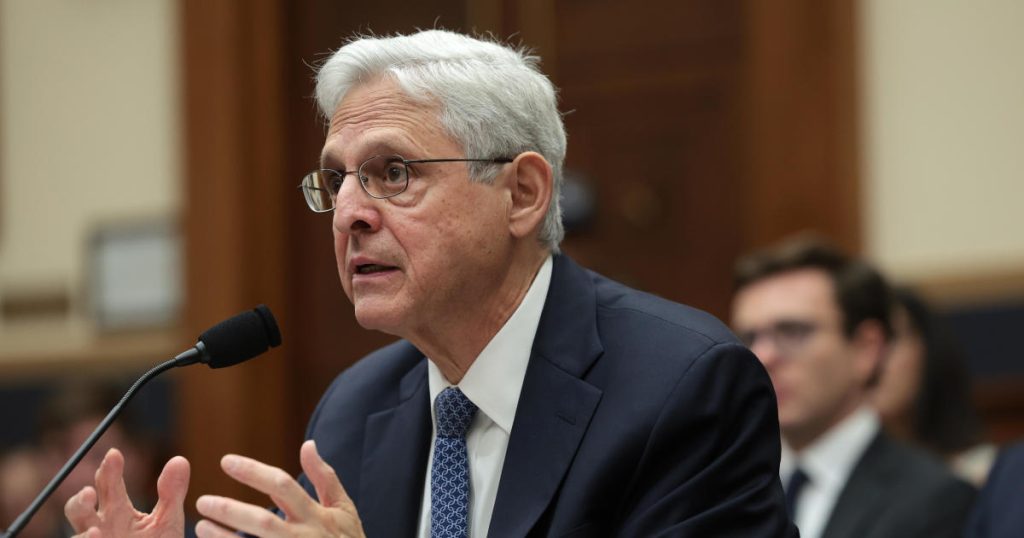House Republicans are planning to vote on holding Attorney General Merrick Garland in contempt of Congress on Wednesday. This comes after the Justice Department defied subpoenas from Republican-led House committees demanding audio recordings of special counsel Robert Hur’s interview with President Biden and his ghostwriter. The interview took place in October 2023 as part of an impeachment inquiry into the president’s handling of classified documents. The committees have transcripts of the interviews but argue that the audio recordings are necessary to ensure the accuracy of the transcripts.
President Biden asserted executive privilege over the recording in May, prompting the committees to recommend holding Garland in contempt. Republicans are concerned that the transcripts may have been altered and believe that comparing them to the audio recordings will reveal any discrepancies. However, the Justice Department has raised concerns about the potential chilling effect on witness cooperation in future high-profile investigations if the recordings are disclosed. If the resolution passes, it would result in the case being referred to the U.S. Attorney for the District of Columbia for potential criminal prosecution.
The decision to move forward with the contempt vote reflects ongoing tensions between the Republican-led House committees and the Justice Department over the handling of audio recordings related to President Biden’s impeachment inquiry. The allegations of mishandling classified documents by the president during his time as vice president have raised concerns among Republicans, leading them to push for access to the recordings of the interviews conducted by special counsel Robert Hur. President Biden’s assertion of executive privilege over the recordings has further inflamed the situation, resulting in the recommendation to hold Attorney General Garland in contempt.
The implications of the contempt vote extend beyond the immediate conflict between the House committees and the Justice Department. If the resolution passes and the case is referred for potential criminal prosecution, it could set a precedent for future interactions between Congress and the executive branch. The decision to hold a high-ranking official like Attorney General Garland in contempt of Congress carries significant weight and could have far-reaching consequences for the relationship between the legislative and executive branches of government. This vote represents a significant escalation in the ongoing battle between House Republicans and the Biden administration over access to crucial information related to the president’s conduct.
The outcome of this contentious vote will likely have implications for the broader political landscape, particularly in terms of transparency and accountability within the government. The House Republicans’ insistence on access to the audio recordings reflects their commitment to conducting a thorough investigation into allegations of mishandling classified documents by President Biden. The Justice Department’s concerns about witness cooperation and the chilling effect of disclosing the recordings highlight the complexities involved in balancing oversight responsibilities with protecting sensitive information. Ultimately, the contempt vote represents a key moment in the ongoing power struggle between Congress and the executive branch, with potential ramifications for future investigations and government transparency.


